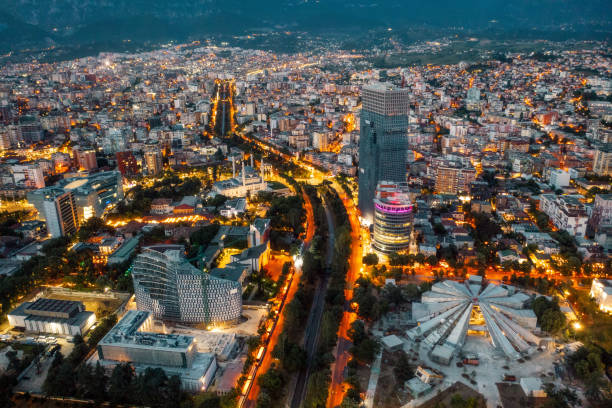Real Estate Trends in Albania in 2025: Insights and Opportunities

Real estate trends in Albania in 2025 reveal significant growth, driven by foreign investments, improved infrastructure, and a thriving tourism industry. From luxury coastal resorts to sustainable urban projects, the Albanian property landscape is evolving rapidly, offering diverse opportunities for both investors and homebuyers.
1. Surge in Foreign Investment
Foreign investment in Albanian real estate has seen a remarkable uptick. In early 2024, foreign investments reached €84 million, marking a 71% increase from the previous year. By the end of Q1 2024, total foreign investment climbed to €1.66 billion, a 41% rise from 2023. This influx is largely attributed to the country’s growing appeal as a luxury destination and its relatively affordable property prices compared to other European markets.
2. Infrastructure Development Boosting Property Values
Major infrastructure projects are enhancing connectivity and accessibility across Albania. The government has allocated €1.6 billion for infrastructure improvements, including the expansion of the Tirana-Durrës highway and the development of the new port in Porto Romano. These upgrades are expected to significantly reduce travel times and increase the attractiveness of suburban and coastal areas for residential and commercial investments.
A notable project is the Llogara Tunnel, which opened in July 2024. This 5.9 km tunnel connects Dukat to Palasë, reducing travel time from 30 minutes to just 7 minutes. It significantly improves access to the southern coast, boosting tourism and property values in the region.
3. Rise of Luxury Real Estate
Albania’s luxury real estate sector is flourishing, with a growing number of high-end developments in cities like Tirana, Durrës, and coastal regions such as Saranda and Vlorë. The demand for modern apartments, private villas, and upscale complexes is fueled by both affluent locals and international investors seeking premium properties at competitive prices.
High-profile investments, such as Jared Kushner’s $1 billion project to develop luxury resorts on Sazan Island and the Vjosa River delta, underscore the country’s potential as a luxury destination. These developments aim to transform Albania’s coastline into a high-end tourist hub.
4. Emphasis on Sustainable and Eco-Friendly Homes
Sustainability is becoming a key focus in Albania’s real estate market. Developers are increasingly incorporating eco-friendly features such as solar panels, energy-efficient materials, and green building practices. This shift is in response to growing environmental awareness and government initiatives promoting sustainable living.
The government plans to enforce zero-emission standards and mandate solar panels on all new and renovated buildings by 2026. This initiative is set to increase the demand for sustainable building materials, making eco-friendly homes more attractive and within reach for many.
5. Growth in Suburban and Coastal Areas
As urban centers become more saturated, investors and homebuyers are turning their attention to suburban and coastal regions. Areas like Paskuqani and Kashar near Tirana offer more affordable property options, while coastal towns such as Ksamil and Dhermi are attracting interest for their scenic beauty and tourism potential.
The expansion of the Tirana-Durrës and Elbasan-Qafë Thane highways, along with the development of rail transport along Corridor VIII, is set to further enhance regional connectivity, making these areas more appealing for residential investments.
6. Cultural and Historical Tourism Driving Demand
Cities rich in cultural heritage, like Gjirokastër and Korçë, are witnessing increased property demand due to their appeal to tourists and history enthusiasts. Investments in restoring historical sites and promoting cultural tourism are enhancing the attractiveness of these areas for both visitors and investors.
The EU4Culture project, launched in 2020 with a budget of €40 million, aims to restore 19 cultural heritage sites damaged by the 2019 earthquake. This initiative is not only preserving history but also boosting tourism and, consequently, property values in these regions.
7. Regulatory Changes Impacting Short-Term Rentals
The Albanian government is implementing stricter regulations on short-term rentals to formalize the tourism sector and increase tax revenues. A new tax of €20 per bed annually has been introduced, with discussions underway to raise it to €50. These changes aim to balance the interests of tourists, property owners, and local communities.
These regulations are expected to impact the profitability of short-term rental properties, prompting investors to consider long-term rental options or alternative investment strategies.
Conclusion
The real estate trends in Albania in 2025 reflect a dynamic and evolving market. With increased foreign investment, infrastructure development, and a focus on sustainability, Albania presents promising opportunities for investors and homebuyers. Staying informed about market trends and regulatory changes is essential for making strategic investment decisions.
